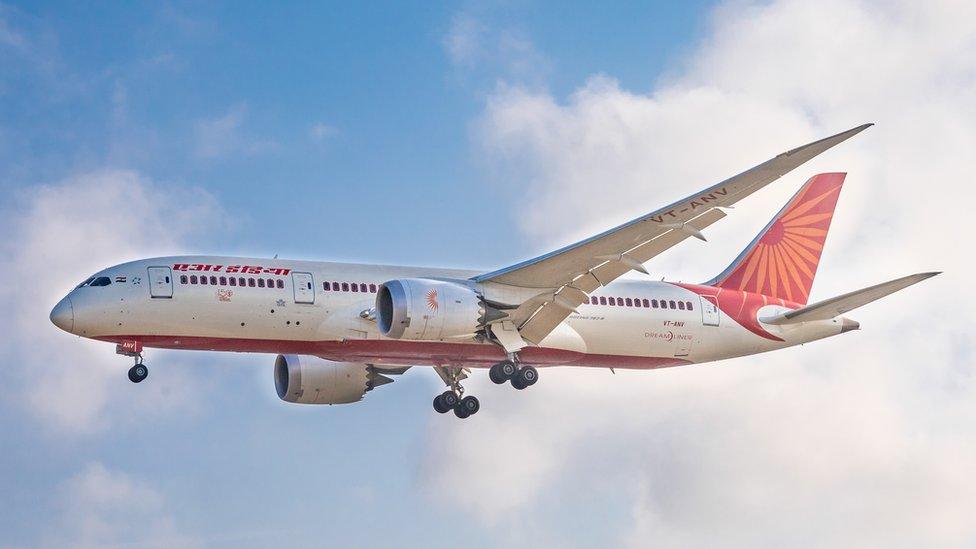Coronavirus: New rules for flyers as India looks to start domestic flights
- Published
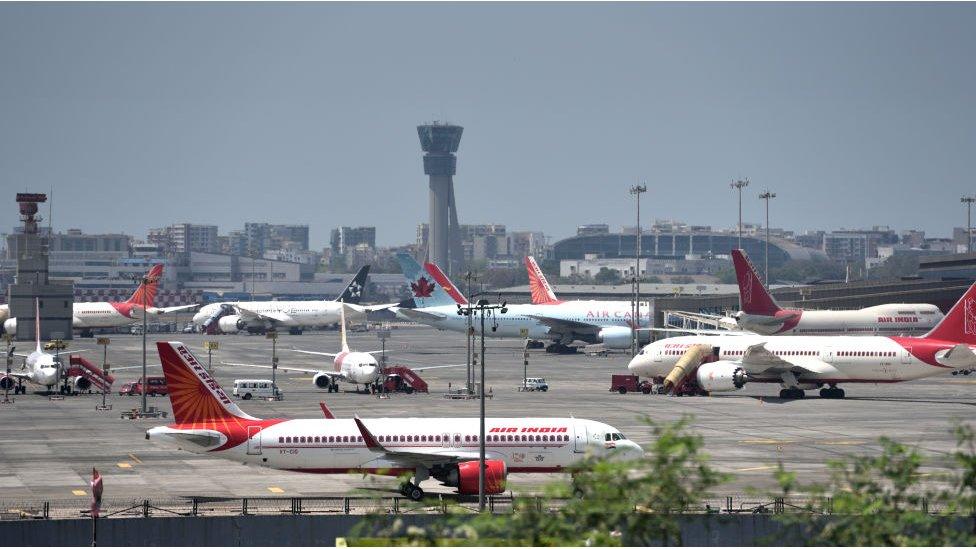
Some domestic flights will start on Monday
India is set to resume domestic flights on Monday, two months after a lockdown to curb the spread of coronavirus.
However, the "new normal" will also see new rules for flyers - passengers will need to have downloaded a government contact-tracing app, and they will also be subject to thermal screening.
Flyers will also need to wear masks and gloves while inside airports.
Civil aviation minister Hardeep Puri said all airports and airlines had been told to prepare for operations.
Allow X content?
This article contains content provided by X. We ask for your permission before anything is loaded, as they may be using cookies and other technologies. You may want to read X’s cookie policy, external and privacy policy, external before accepting. To view this content choose ‘accept and continue’.
It is not yet clear which routes will be operational on India's busy domestic sector. That decision has been left up to individual state governments.
On 25 March, India shut down its $2.9 trillion (£2.3tn) economy, closing its businesses and issuing strict stay-at-home orders to more than a billion people.
It was one of the first countries to impose heavy travel restrictions, including suspending most visas and eventually stopping all international flights. It also banned trains and flights within the country when the lockdown began.
However, the ministry has released a detailed set of guidelines for passengers which will be applied across the country:
Before entering the airport
Passengers are expected to get to the airport two hours ahead of their flights, must "compulsorily" undergo thermal screening and will have to show officials that they are marked as "safe" on Aarogya Setu, India's Covid-19 contact tracing app. Children under the age of 14 are exempt.
People will also need to be in masks and gloves, and are only allowed to use select taxi services and private vehicles.
Waiting areas will have taped off or marked seats that cannot be used and the use of luggage trolleys will be discouraged. Baggage will be sanitised before flyers are allowed to enter and mats and carpets soaked with a bleach will be placed at terminal entrances to disinfect shoes.
Airport staff will be provided with hand sanitisers and Personal Protection Equipment (PPE).
Delhi International Airport Limited (Dial), which operates the airport in the capital, had earlier said that "a slew of measures are being rolled out" in preparation for commercial flights to resume.
These include "specially designed ultraviolet (UV) based tunnels to disinfect check point trays and baggage, mobile UV towers to disinfect surfaces in terminal areas and hand held UV devices".
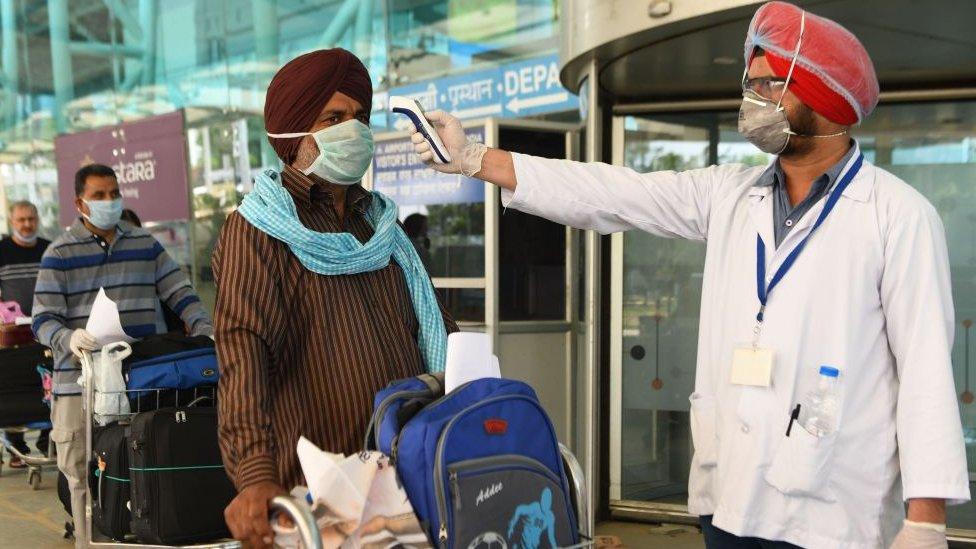
Passengers will need to be in masks and gloves, and are only allowed to use select taxi services and private vehicles.
Getting on and off flights
People will have to get on and off aircraft sequentially and in batches, so as to maintain social distancing.
There had been some speculation that the middle seats on flights would be kept empty to maintain social distancing, but Mr Puri told news agency ANI that this was not "viable".
Even if "you keep the middle seat vacant you'll still have a situation where prescribed distance for social distancing isn't followed", the minister said, adding that this would lead to a 33% hike in ticket prices.
Several states had expressed concerns over resuming flights as cities like Delhi and Mumbai are still red zones - which means they are still seeing a rise in infections.
- Published15 May 2020
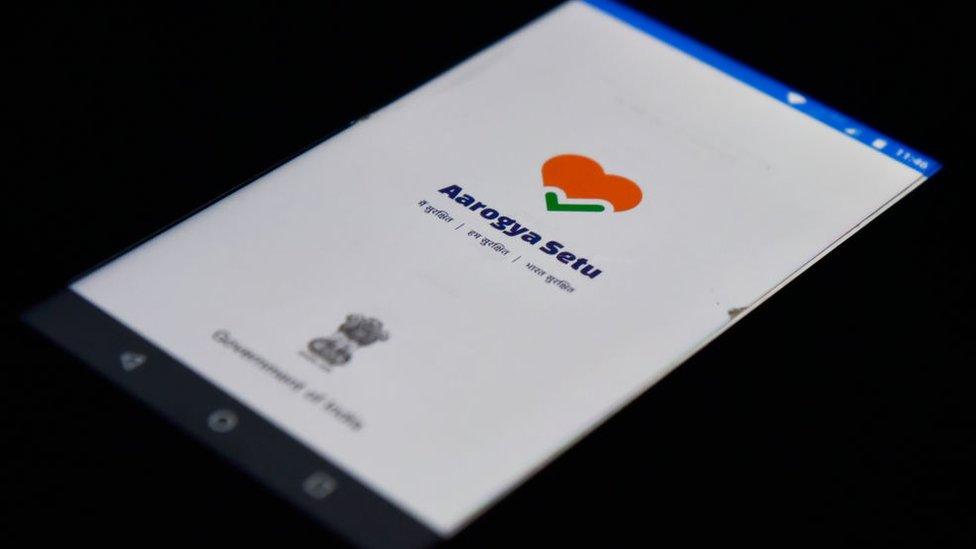
- Published19 May 2020
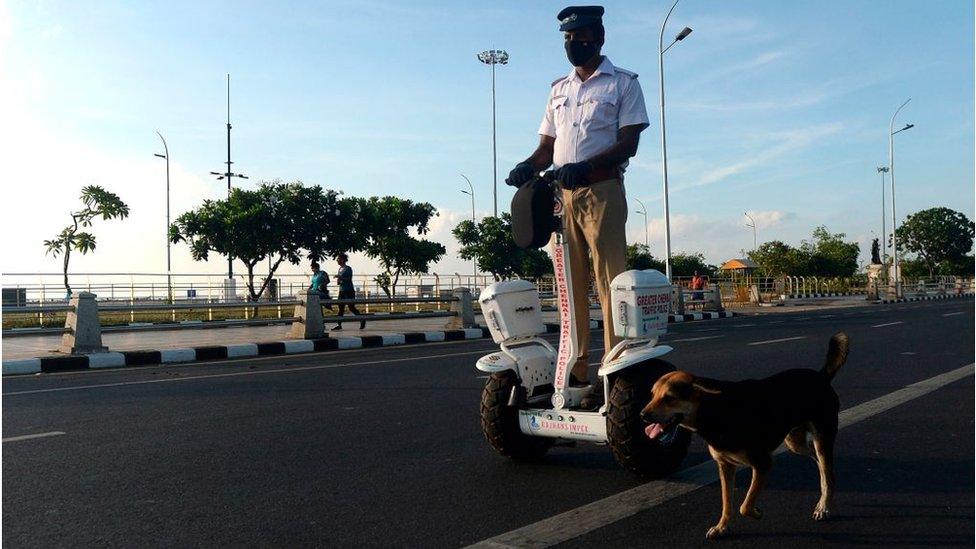
- Published2 April 2020
